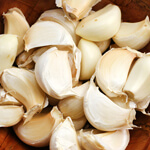 A sore throat, or inflammation of the pharynx and fauces, is a common medical condition that affects most people at some point in their lives. It is usually a symptom of a viral or bacterial infection, such as the common cold, though some cases can be caused by a swollen tonsil or enlarged glands in the neck.
A sore throat, or inflammation of the pharynx and fauces, is a common medical condition that affects most people at some point in their lives. It is usually a symptom of a viral or bacterial infection, such as the common cold, though some cases can be caused by a swollen tonsil or enlarged glands in the neck.
Most sore throat infections are not serious and usually pass without a need for medical aid. However, the more acute cases can be unpleasant to endure, prompting some people to seek antibiotic treatment. Unfortunately, commercial antibiotics tend to be comprised of unnatural ingredients that can cause even more problems in the long term. Instead, consider the following home remedies, which are proven to treat sore throats naturally, effectively, and without side effects.
Salt Water
Gargling salt water is probably the best-known and most popular remedy for a sore throat, and for good reason: It works. Aside from drawing moisture out of any bacteria living in our throats, salt water also draws moisture out of our swollen tissues, thereby relieving inflammation. Additionally, a saline environment prevents future bacteria from growing in the first place.
Salt water tends to work best when moderate, rather than excessive, amounts of salt are added to the water. Ideally, you’ll want to add no more than one tablespoon of salt per glass of water (warm water is recommended). Then, do around three 10-second gargles in a row around three or four times a day until the infection subsides.
Garlic
Garlic might not be the most appealing remedy for a sore throat, but it’s arguably the most effective. Garlic contains numerous bioactive compounds, including the sulfur compound allicin, that possess significant antibacterial, antimicrobial, antiviral, and antifungal properties, and studies have shown that the herb can treat a large number of infections.
To use garlic for this purpose, slice a fresh clove of organic garlic in half, place one half of the clove in each cheek and suck on them like a cough drop. Though there’s no need to bite into the garlic pieces, it’s a good idea to crush them against your teeth on occasion to release more allicin into the mouth. This routine should be done once per day.
Apple Cider Vinegar
Like garlic, apple cider vinegar isn’t the most pleasant remedy to use, but many people swear by it. While apple cider vinegar alone can treat sore throats (its high acidity makes short work out of most bacteria), mixing a little unprocessed, raw honey into it can improve its taste and soothe any soreness caused by the infection. Cayenne pepper is also a good ingredient to add to apple cider vinegar due to its high concentrations of capsaicin, a proven anti-inflammatory and analgesic.
For best results, mix one tablespoon of organic apple cider vinegar (along with one tablespoon of raw honey or cayenne powder if desired) into a cup of warm water and drink the mixture first thing in the morning. If you’d rather gargle the mixture than drink it due to its unpleasant taste, it’s a good idea to increase the amount of apple cider vinegar in the water to two or three tablespoons.






